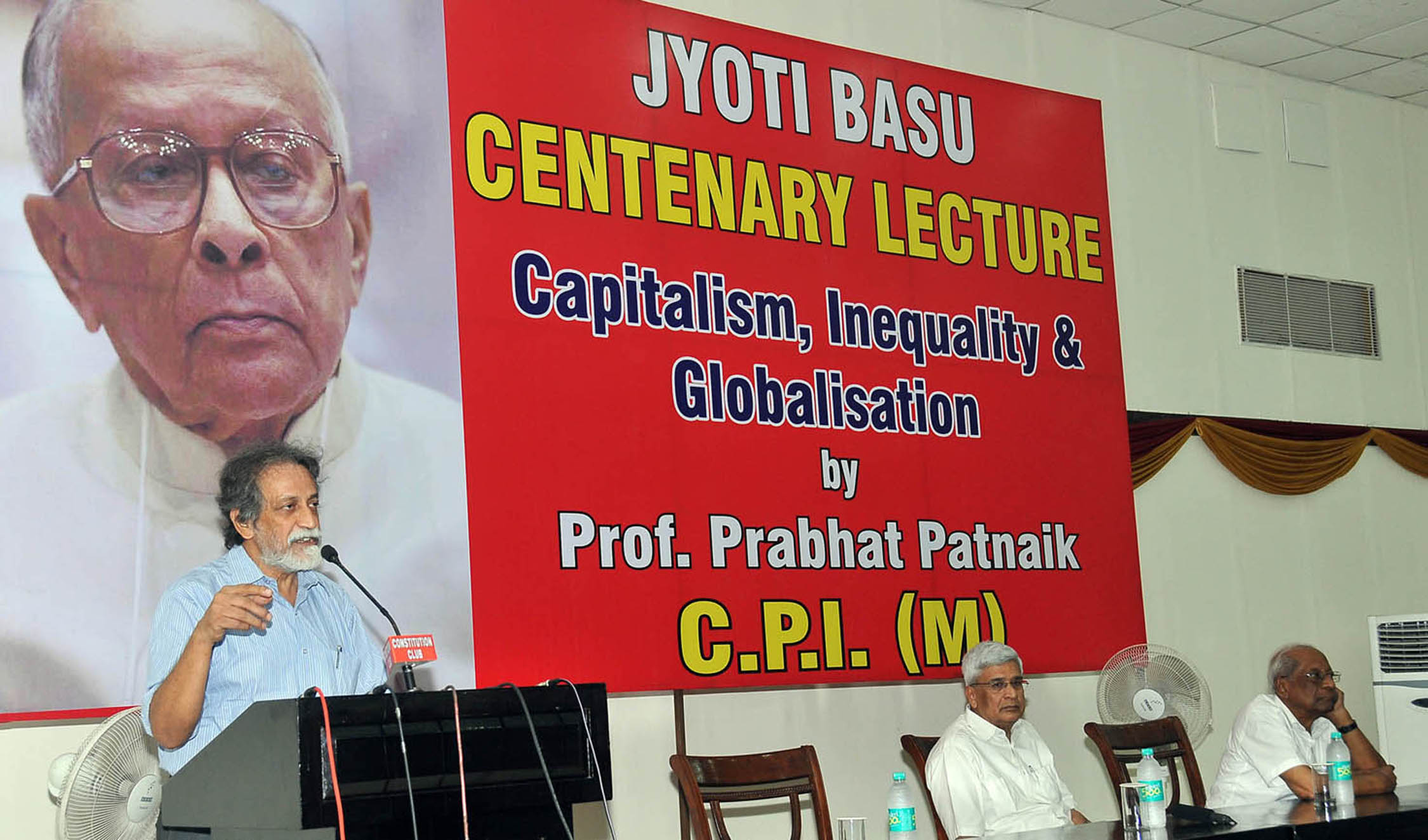
CPI(M) Organises Jyoti Basu Centenary Lecture
THE Communist Party of India (Marxist) organised a lecture by noted economist Prof. Prabhat Patnaik on "Capitalism, Inequality and Globalisation" in New Delhi's Constitution Club on July 30, as part of the Jyoti Basu birth centenary celebrations.
In his short welcome address, CPI(M) general secretary Prakash Karat said Jyoti Basu symbolised the working class movement in India and its achievements. He said Basu, who was first elected to the Bengal Provincial Assembly in 1946 from the Railway Workers constituency, was an outstanding leader of the Communist movement in India.
Giving the Jyoti Basu centenary lecture, in the light of French economist Thomas Piketty's empirical book Capital in the Twenty-First Century which has attracted much international attention, Patnaik said "inequality has a tendency to increase under capitalism", and it is intimately linked to the process of globalisation.
Patnaik argues, though Piketty's hypothesis that inequality is set to rise in the coming year is agreeable, his theoretical basis -- the "neo-classical" paradigm -- within which his argument is set is a largely discredited one; and even within this paradigm his specific position is based on assumptions which are highly untenable.
The theoretical basis of Piketty is "wrong" having "dangerous political implications", he says.
The "neo-classical" paradigm, Patnaik said, blames trade union activities for persistent unemployment and advocates for "labour market flexibility". He says it is a pity that Piketty, despite his concern with wealth inequality, adopts this theory that only serves the agenda of corporate capital. He said the votaries of capitalism want to stamp out trade unions through "free hire and fire", which the BJP government in Rajasthan is at present trying to introduce.
Patnaik says mobility of capital in the present age of globalisation and large-scale privatisation have contributed to the weakening of trade unions. In support of his claim, he says while, in the USA, 33 percent of workforce in the public sector is unionised, it is only seven percent in the private sector.
He says the expansion of big capital across the world and, on the contrary, restriction of workers' movements to a particular country have further weakened the effectiveness of trade unions.
Patnaik says while world wealth and income inequalities are all set to rise sharply in the coming years as Piketty prognosticates, but, he argues, these are for reasons which are exact opposite of what the French economist believes.
He argues that the rise in income and wealth inequalities could not be attributed to, as Piketty has done in his Capital, the slowing down of world population growth leading to tightness in world labour markets, but for precisely the opposite reason – namely that there will be no tightness in world labour markets and no diminution in world labour reserves.
The programme was well attended. Veteran CPI leader A B Bardhan was among others who attended the lecture.


